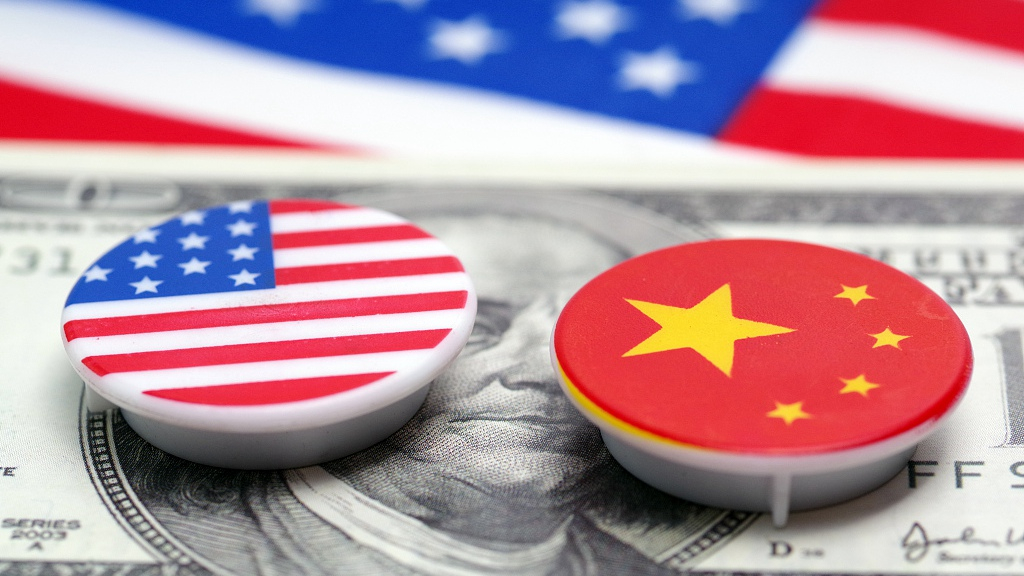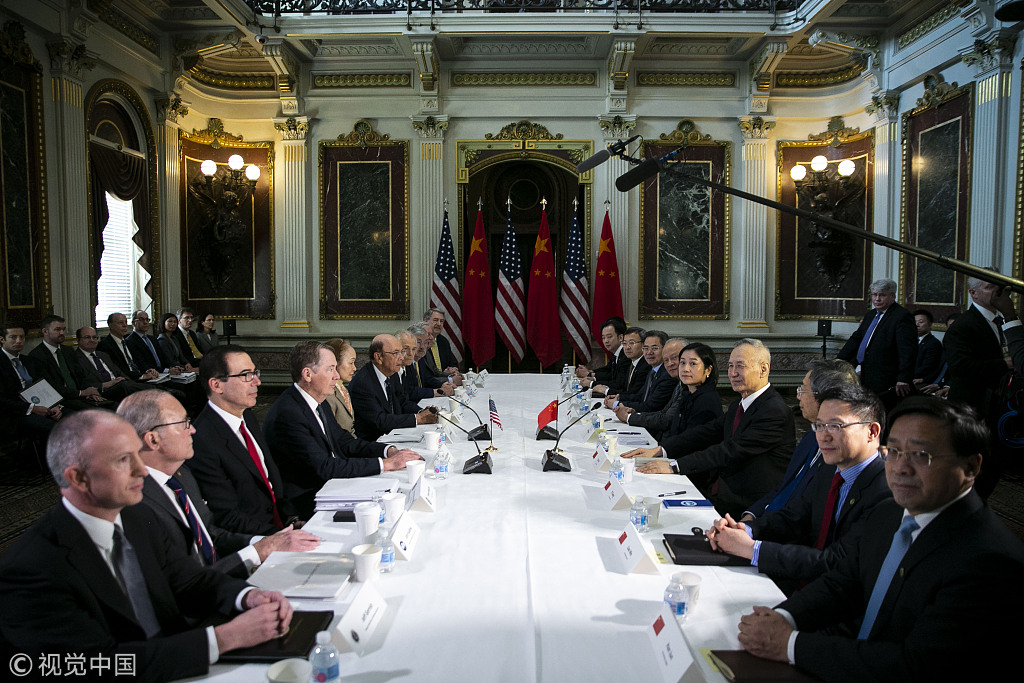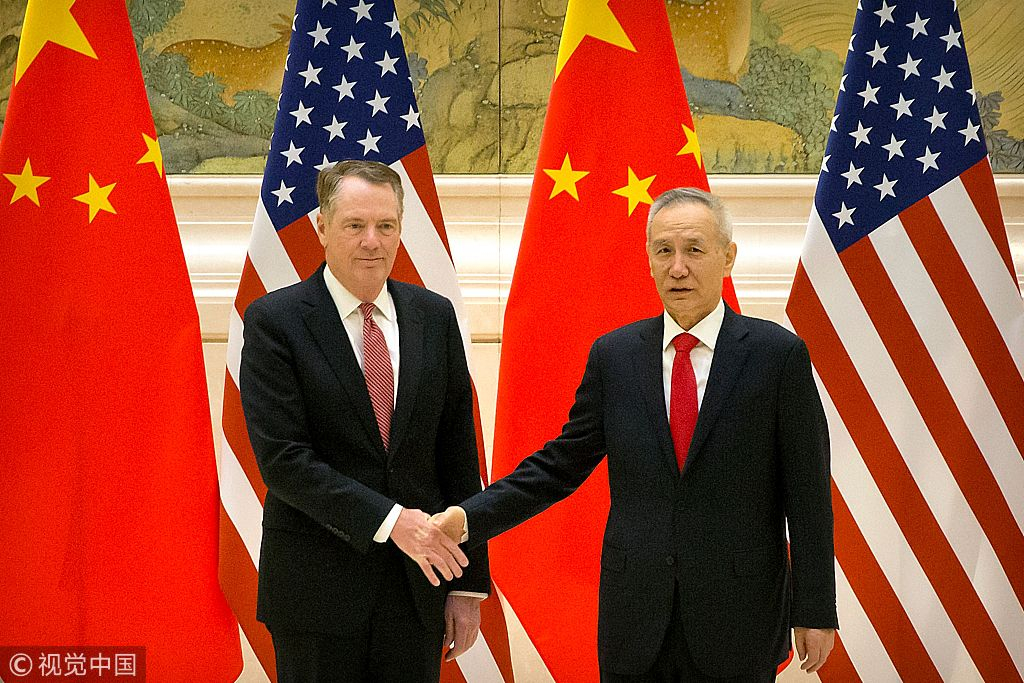
Opinion
08:54, 29-Mar-2019
Unmasking Sino-U.S. trade frictions
Liu Jianxi

Editor's Note: As the eighth round of trade negotiations between the world's largest two economies kicked off in Beijing on Thursday, the Sino-U.S. relationship has again been thrust under the media limelight. What are the fundamental reasons for their trade spats? How will the brewing conflicts impact the world economy? What has the Sino-U.S. economic power play taught the world? Chen Wenling, chief economist at the China Center for International Economic Exchanges, offered her insight at Chongyang Institute for Financial Studies, Renmin University of China.
The world is witnessing unprecedented changes in recent years. While the United States was a major beneficiary from the economic globalization, it is now a disruptor of the global order.
The 1920s were the golden decade for the United States – the country's economy grew by 48 percent during that period. With its manufacturing output making for over 50 percent of the world's total, the U.S. was a leading nation in the second and third technological revolutions.
Accumulations from the golden decade have led to U.S. hegemony on the global arena. With the establishment of the IMF, the World Bank and the WTO, U.S.-led Western countries secured their dominance of the global order and international rulemaking.
Under the 1944 Bretton Woods Agreement, the U.S. dollar overtook the British pound as the hegemonic currency. The United States has eventually become a superpower in technology, manufacturing and military.

Chinese and U.S. trade representatives meet in Washington D.C., U.S., February 21, 2019. /VCG Photo
Chinese and U.S. trade representatives meet in Washington D.C., U.S., February 21, 2019. /VCG Photo
But this changed under Donald Trump's administration. In the name of the "America First" doctrine. The United States withdrew from a slew of international organizations and pacts, including the UNESCO, the Paris Agreement, the Iran nuclear deal and the Trans-Pacific Partnership.
Apart from the withdrawal, Washington has been acting provocatively against other countries, launching trade, technology and finance wars against rising economies, seeking color revolutions and regime change in the Middle East and taking unwarranted military actions against Iraq.
Moreover, with a Cold War mentality, the Trump administration is even considering building a wall on the U.S. border with Mexico, which eventually resulted in the longest governmental shutdown in the country's history.
All the above has accelerated the U.S.' decline, with Sino-U.S. trade spats as the historic turning point. De-dollarization, de-U.S. debt, and de-Americanization are increasingly becoming the trend of the times.
China, on the contrary, is rising to be the world's largest trade nation and the second largest economy with the world's highest manufacturing outputs. The international community recognizes its enhanced strength in finance, technology, military and infrastructure.

U.S. Trade Representative Robert Lighthizer (L) and Chinese Vice Premier Liu He shake hands as they pose for a photo before the opening session of the trade negotiations at the Diaoyutai State Guesthouse in Beijing, February 14, 2019. /VCG Photo
U.S. Trade Representative Robert Lighthizer (L) and Chinese Vice Premier Liu He shake hands as they pose for a photo before the opening session of the trade negotiations at the Diaoyutai State Guesthouse in Beijing, February 14, 2019. /VCG Photo
Washington's unilateral trade fight against Beijing runs contrary to economic rules, the trend of the times, the intrinsic requirements of global governance and morality. The Trump administration's trade fight is shooting itself in the foot.
"The U.S. economy lost 7.8 billion USD in last year alone as a result of the trade war; imports have fallen by 31.5 percent… and exports have fallen by 11 percent; the costs of tariffs are paid entirely by U.S. consumers, not by foreign sellers lowering their prices," American scholars concluded in "The Return to Protectionism."
History suggests that major economic crises are, in no small degree, attributed to human mistakes. The United States is increasingly becoming the source of global uncertainty. Its trade sanctions on its competitors are purely human mistakes, which will drag the global economy into uncertainties.
By launching a unilateral trade fight against Beijing, Washington has opened Pandora's Box. The United States is straining every nerve to contain China's manufacturing development and has launched unjustified attacks on Chinese high-tech companies including ZTE and Huawei. Washington's monetary policy has also increased financial risks on the Chinese market.
To address this, cooperation is the only option for China and the United States. With their two-way investment adding up to 240 billion U.S. dollars, the two economies have never seen closer ties than today. A sound Sino-U.S. relationship is to the benefit of the whole world.
As China and the United States are in the middle of the eighth round of trade negotiations, the two sides should seize the opportunity to reach a two-way, fair and equal deal that benefits the entire world.
(If you want to contribute and have specific expertise, please contact us at opinions@cgtn.com.)

SITEMAP
Copyright © 2018 CGTN. Beijing ICP prepared NO.16065310-3
Copyright © 2018 CGTN. Beijing ICP prepared NO.16065310-3